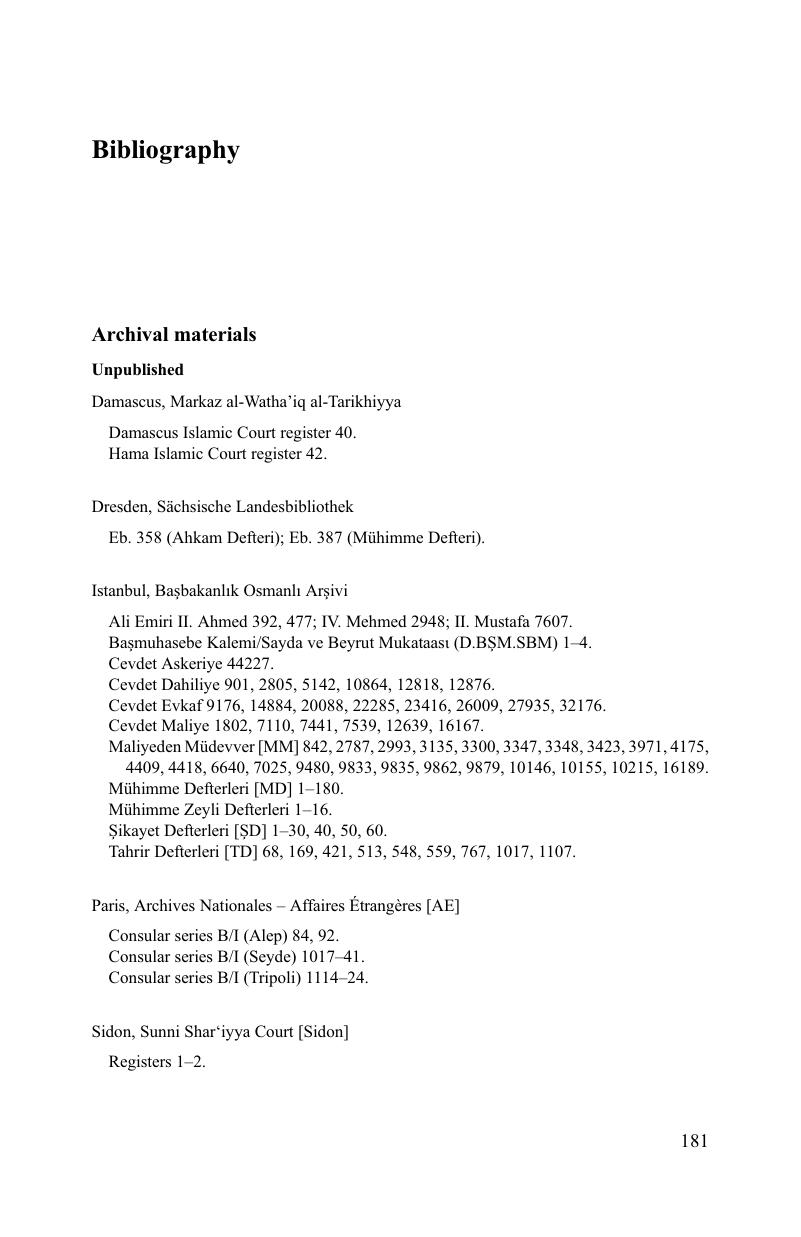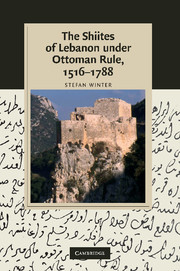Book contents
- Frontmatter
- Contents
- Lists of illustrations and maps
- Acknowledgements
- Note on transliterations
- List of abbreviations
- Introduction
- 1 Shiism in the Ottoman Empire: between confessional ambiguity and administrative pragmatism
- 2 The invention of Lebanon: Ottoman governance in the coastal highlands, 1568–1636
- 3 Mount Lebanon under Shiite rule: the Hamada ‘emirate’, 1641–1685
- 4 The reshaping of authority: the Shiites and the state in crisis, 1685–1699
- 5 Jabal ‘Amil in the Ottoman period: the origins of ‘south Lebanon’, 1666–1781
- 6 From dependence to redundancy: the decline of Shiite rule in Tripoli and the Bekaa, 1699–1788
- Conclusion
- Bibliography
- Index
- Cambridge Studies in Islamic Civilization
- References
Bibliography
Published online by Cambridge University Press: 21 April 2010
- Frontmatter
- Contents
- Lists of illustrations and maps
- Acknowledgements
- Note on transliterations
- List of abbreviations
- Introduction
- 1 Shiism in the Ottoman Empire: between confessional ambiguity and administrative pragmatism
- 2 The invention of Lebanon: Ottoman governance in the coastal highlands, 1568–1636
- 3 Mount Lebanon under Shiite rule: the Hamada ‘emirate’, 1641–1685
- 4 The reshaping of authority: the Shiites and the state in crisis, 1685–1699
- 5 Jabal ‘Amil in the Ottoman period: the origins of ‘south Lebanon’, 1666–1781
- 6 From dependence to redundancy: the decline of Shiite rule in Tripoli and the Bekaa, 1699–1788
- Conclusion
- Bibliography
- Index
- Cambridge Studies in Islamic Civilization
- References
Summary

- Type
- Chapter
- Information
- The Shiites of Lebanon under Ottoman Rule, 1516–1788 , pp. 181 - 194Publisher: Cambridge University PressPrint publication year: 2010



